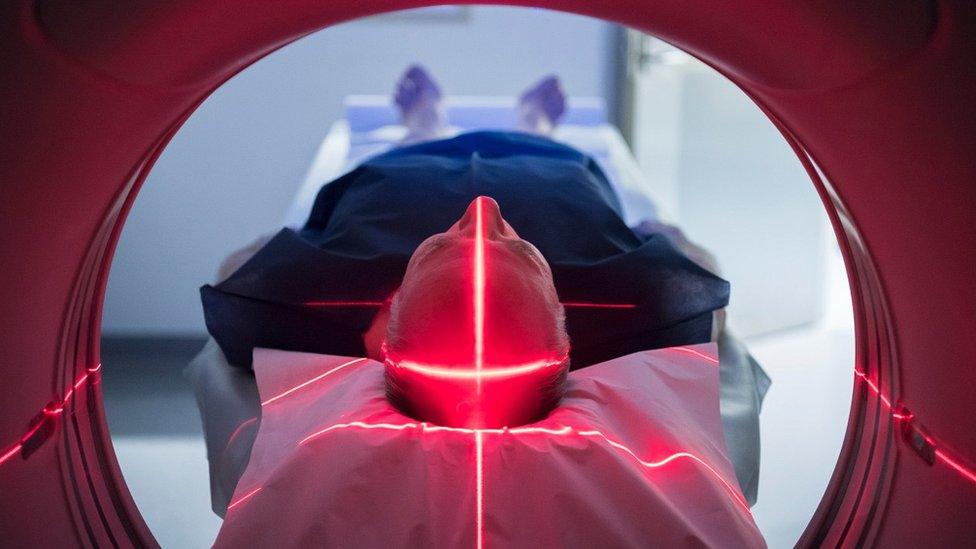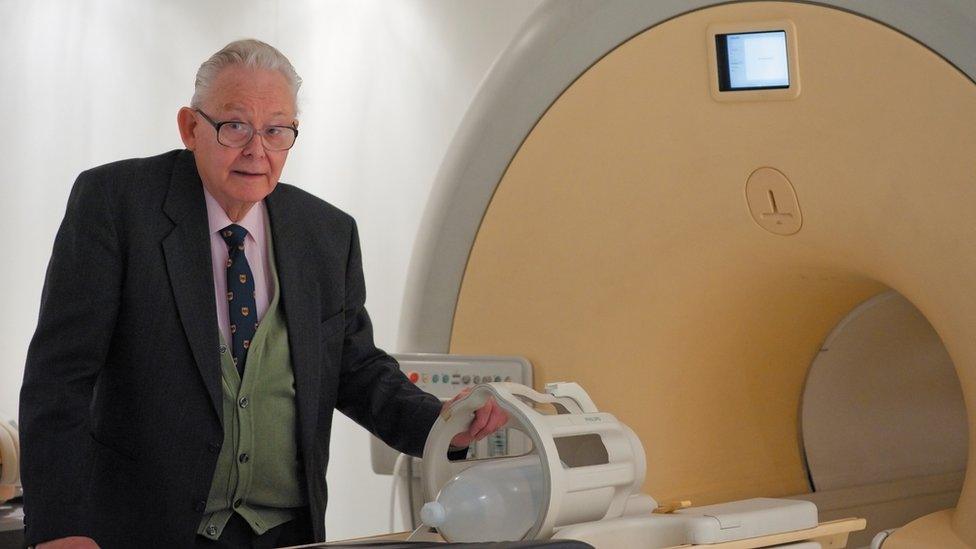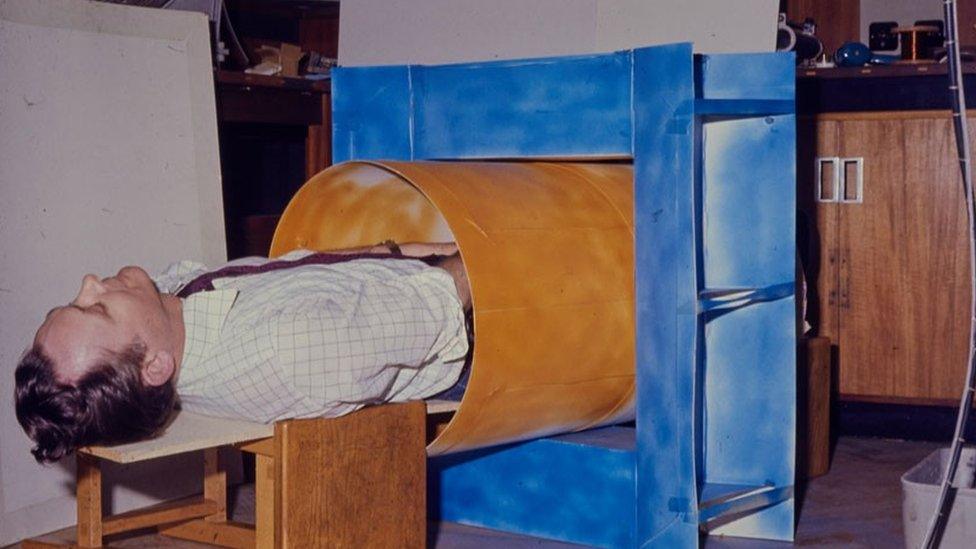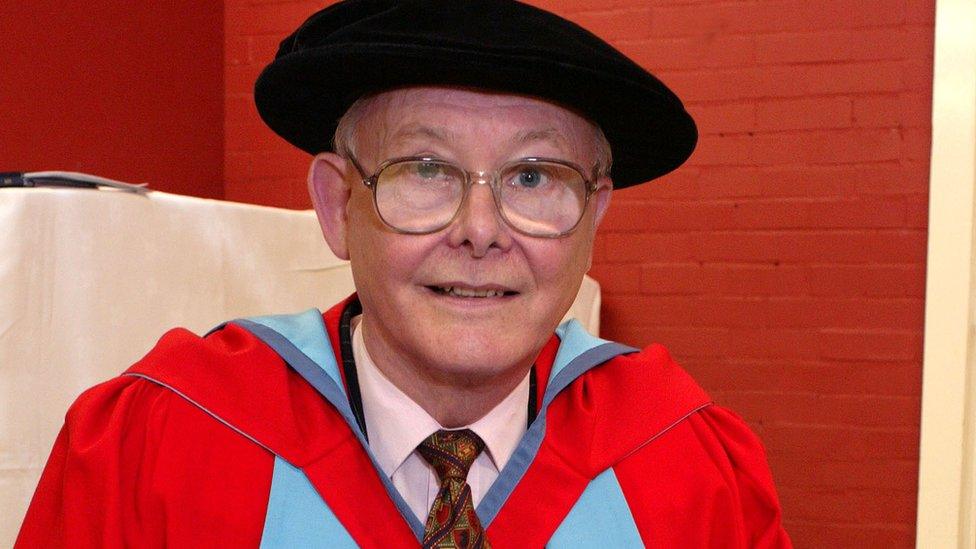UK's most powerful MRI scanner set to come to Nottingham
- Published

MRI scanners allow the examination of internal organs and structures without using potentially harmful X-rays
Plans to build the UK's most powerful MRI scanner in Nottingham - designed to tackle conditions such as Alzheimer's - have been revealed.
Magnetic resonance imaging generates 3D internal images of the body using strong magnetic fields and radio waves.
The University of Nottingham said the new machine will use temperatures of -270 C and be 1,000 more powerful than those pioneered in the 1970s.
It is hoped to be operational by late 2026 or early 2027.

Professor Sir Peter Mansfield, who died in 2017, pioneered MRI technology at the university
MRI technology was developed at the university by Sir Peter Mansfield, who volunteered for the first human tests in 1978.
The scanner will be built by Tesla Engineering Ltd and Philips UK and Ireland.

Rob Sissons Health Correspondent BBC East Midlands
MRI scanning has transformed diagnostic imaging and the arrival of UK's most powerful scanner will herald the next chapter of the MRI story and its long association with Nottingham.
The 11.7 Tesla scanner will equal the world's most powerful one in Paris.
The UK machine will be housed in the Sir Peter Mansfield Imaging Centre at the University's main Nottingham campus.
It is named after the scientist who carried out his now legendary work developing MRI on the site in the 1970s. Today, MRI imaging is in major hospitals around the world and has saved countless lives diagnosing cancers far more effectively than X-ray.
The word breakthrough, sometimes overused in science, definitely applies to the advent of MRI and the new machine will continue Sir Peter's impressive legacy.
It also symbolises the University of Nottingham is very much still in the race to discover more about the human body with non-invasive imaging.
The new scanner will be used to understand more about the human brain, as scientists acknowledge there is still so much we do not know about brain development and functioning.

Tesla Engineering will provide the magnet and coil which, using temperatures just 2.5C above absolute zero, will create a magnetic field measured at 11.7 Teslas - 200,000 times more powerful than earth's.
Philips will develop the advanced scanner hardware to exploit new advances in machine learning to optimally produce detailed images, the university said. It is hoped the machine will advance the understanding of neurodegenerative diseases such as Alzheimer's, Parkinson's and Huntington's and disorders including autism and schizophrenia. Prof Richard Bowtell, head of the university's Sir Peter Mansfield Imaging Centre, described it as a "huge step forward in technology".
"The magnetic field it uses is very much stronger and that means we get bigger signals we can use to measure information with finer detail.
"It is going to allow us to look in the brain with unprecedented detail at both the structure, the way things are put together and the function of the brain," he said.

Follow BBC Nottingham on Facebook, external, on X, external, or on Instagram, external. Send your story ideas to eastmidsnews@bbc.co.uk, external or via WhatsApp, external on 0808 100 2210.
Related topics
- Published26 December 2019

- Published9 February 2017
